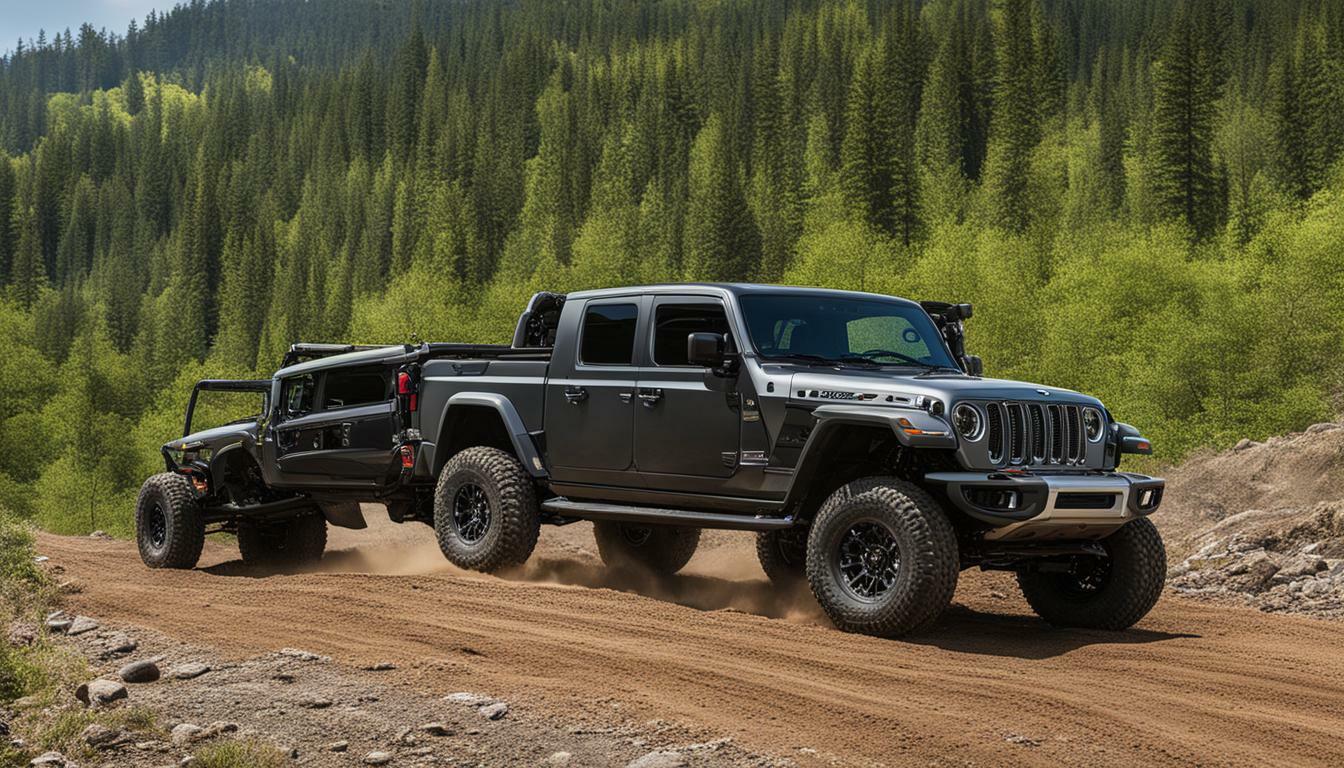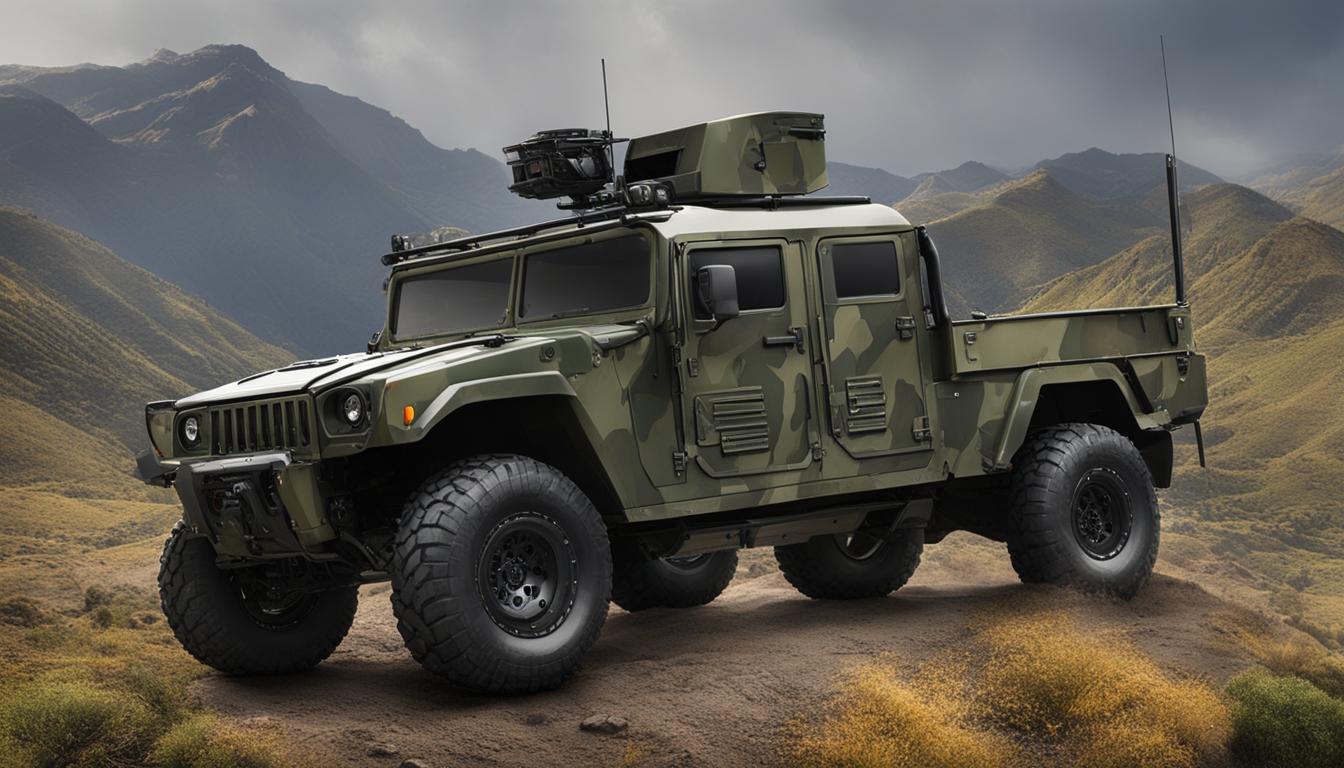Off-road trucks come in different frame types, with the main options being rigid frames and articulating frames. These frame types play a crucial role in the performance and utility of off-road trucks, particularly in challenging terrains. Understanding the differences between rigid and articulating frames is essential for choosing the right frame type for specific job requirements.
Key Takeaways:
- Rigid frames are characterized by a single fixed chassis, providing stability and suitability for long-distance journeys on flat terrain.
- Articulating frames feature a point of articulation, allowing for increased maneuverability and traction on uneven or slippery terrain.
- Rigid dump trucks are designed for transporting large, rocky materials across rocky terrain.
- Articulated dump trucks excel in maneuverability on narrower, twisted, and steeper roads, as well as in extreme weather conditions.
- The choice between rigid and articulating frames depends on factors such as job site size, terrain type, and the material being hauled.
As we delve deeper into the topic, we’ll explore the advantages of each frame type, the construction and design factors that differentiate them, and how these factors impact off-road truck performance. By the end, you’ll have a comprehensive understanding of the difference between rigid and articulating frames in off-road trucks, enabling you to make informed decisions when selecting the right frame type for your specific needs.
Rigid Frames in Off-Road Trucks
Rigid frames are a popular choice for off-road trucks due to their specific benefits and advantages over other frame types.
One of the key advantages of rigid frames in off-road trucks is their stability. The cab and dump body of a rigid frame truck sit on one fixed chassis, providing a sturdy and secure base for hauling heavy loads. This stability makes rigid frame trucks well-suited for long-distance journeys on flat terrain. They can handle large, rocky materials across rugged landscapes with ease.
Rigid frame off-road trucks also offer a high level of durability. The solid construction of the frame ensures that the truck can withstand the harsh conditions of off-road environments. This durability contributes to the longevity of the vehicle, reducing maintenance costs and increasing overall productivity.
| Advantages of Rigid Frames in Off-Road Trucks |
|---|
| Stability |
| Durability |
| Ability to handle large, rocky materials |
In contrast to articulated frames, rigid frame off-road trucks may have limitations when it comes to maneuverability on uneven or slippery terrain. The fixed chassis design restricts the truck’s turning radius and ability to navigate tight spaces. Therefore, rigid frames may not be the ideal choice for narrow, twisted, or steep roads.
Ultimately, the decision to choose a rigid frame off-road truck depends on various factors such as the size of the job site, the type of terrain, and the amount and type of material that needs to be hauled. It is crucial to assess these factors carefully to determine the most suitable frame type for the specific requirements of each job.

Articulating Frames in Off-Road Trucks
Articulating frames offer unique advantages in off-road trucks, making them a popular choice for certain applications and terrains. Unlike rigid frames, which have a fixed chassis for the cab and dump body, articulating frames feature a point of articulation behind the cab, allowing for increased maneuverability and traction on uneven or slippery terrain. These frames are specifically designed to navigate narrower, twisted, and steeper roads, making them well-suited for construction sites in urban areas or remote locations with challenging topography.
One of the key advantages of articulating frames is their ability to articulate, or bend, in the middle. This flexibility allows the rear wheels to follow the same path as the front wheels, enhancing the truck’s stability and reducing the risk of tipping over. Furthermore, the articulation point acts as a pivot, allowing the truck to navigate tight corners and turn with ease. This feature makes articulating frames ideal for jobs that require frequent maneuvering, such as road construction, landscaping, and mining operations.
Moreover, articulating frames provide exceptional traction on uneven or slippery terrain. The ability to distribute weight more evenly across the truck’s axles ensures better grip, preventing wheels from spinning and enhancing overall control. This makes articulating frames highly effective in off-road conditions where traction is crucial, such as muddy construction sites, snowy landscapes, and mountainous terrains.
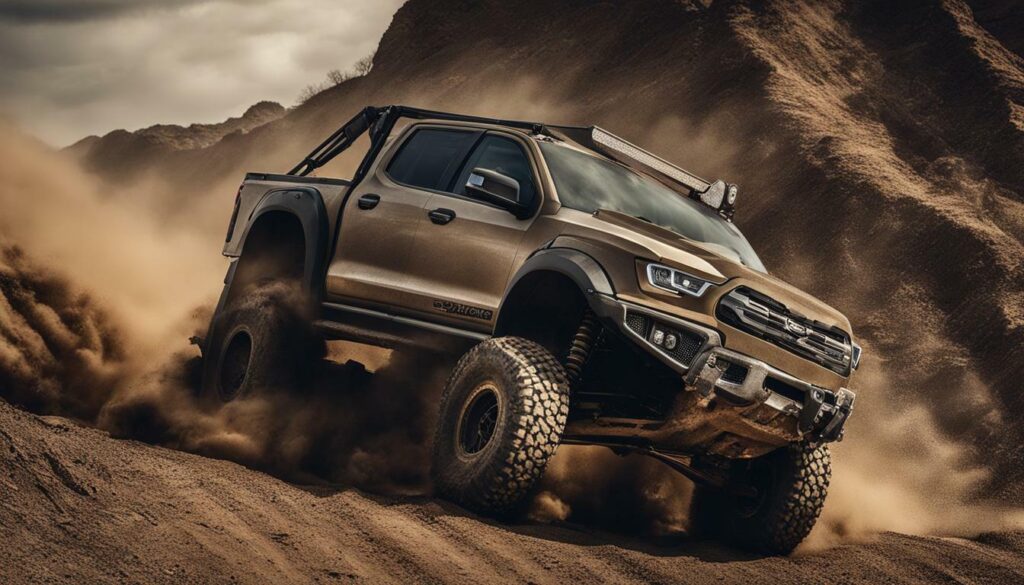
When comparing rigid and articulating frames in off-road trucks, it is essential to consider the specific requirements of the job and the terrain it entails. While rigid frames excel in stability and long-distance hauling on flat terrain, articulating frames offer unmatched maneuverability and traction on challenging surfaces. By understanding the unique advantages of each frame type, operators and project managers can make informed decisions when selecting the most suitable frame for their off-road truck applications.
Construction and Design Factors
The construction and design of off-road truck frames play a crucial role in determining their performance and functionality in various conditions. When it comes to off-road truck frame construction, there are several key factors to consider, including the placement of the cab, dump body, and points of articulation.
Rigid dump trucks feature a fixed chassis where the cab and dump body are attached. This design provides stability and durability, making rigid frames ideal for transporting large, rocky materials across rugged terrain. With their solid structure, rigid dump trucks are well-suited for long-distance journeys on flat terrain, providing a smooth and controlled ride.
In contrast, articulated dump trucks have a cab that attaches to the tipping body at a point of articulation behind the cab. This design allows for increased maneuverability, making articulated frames perfect for navigating narrow, twisted, and steep roads. Additionally, the articulating point enables the truck to adapt to uneven or slippery terrain, ensuring superior traction and performance.
When it comes to off-road truck frame construction, it’s essential to consider the specific job requirements. Factors such as the size of the job site, the type of terrain, and the quantity and nature of the material being hauled all play a role in selecting the right frame type. Rigid dump trucks excel in stability and long-distance hauling, while articulated dump trucks offer enhanced maneuverability and adaptability in challenging off-road conditions.
By understanding the construction and design factors of off-road truck frames, you can make an informed decision when choosing the appropriate frame type for your specific needs. Whether you require the stability of a rigid frame or the flexibility of an articulated frame, selecting the right option will ensure optimal performance and efficiency in your off-road truck operations.
| Frame Type | Advantages |
|---|---|
| Rigid Frames |
|
| Articulating Frames |
|
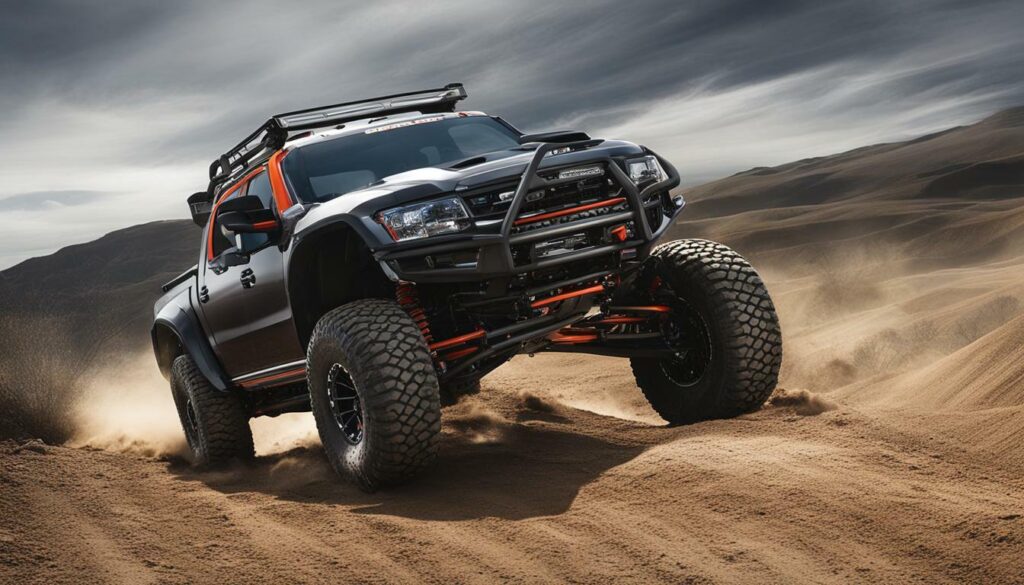
Choosing the Right Frame for the Job
Selecting the right frame type for off-road trucks depends on various factors that need to be carefully evaluated. When deciding between rigid and articulating frames, it’s essential to consider the size of the job site, the type of terrain, and the amount and type of material that needs to be hauled. By understanding these factors, you can make an informed decision that maximizes productivity and efficiency.
Rigid dump trucks are ideal for transporting large, rocky materials across rugged terrain. Their stable design makes them well-suited for long-distance journeys on flat terrain. With a cab and dump body fixed on a single chassis, rigid frames offer enhanced stability and are capable of carrying heavy loads. If your project involves transporting substantial quantities of materials over relatively flat and stable ground, a rigid frame may be the best choice for you.
On the other hand, if your project requires maneuverability and adaptability to challenging terrains, an articulated dump truck with an articulating frame is worth considering. Articulating frames allow for increased traction and flexibility, making them suitable for narrower, twisted, and steeper roads. Additionally, their ability to articulate provides excellent maneuverability, especially in tight spaces. This makes them highly valuable for projects that involve uneven or slippery terrain and extreme weather conditions.
| Frame Type | Advantages |
|---|---|
| Rigid |
|
| Articulating |
|
Ultimately, the decision on which frame type to choose for your off-road truck should align with the specific requirements of your project. By carefully evaluating the job site, terrain, and material hauling needs, you can select the frame type that maximizes productivity and ensures optimal performance. Remember, the choice between rigid and articulating frames will have a significant impact on the overall efficiency and success of your off-road operations.
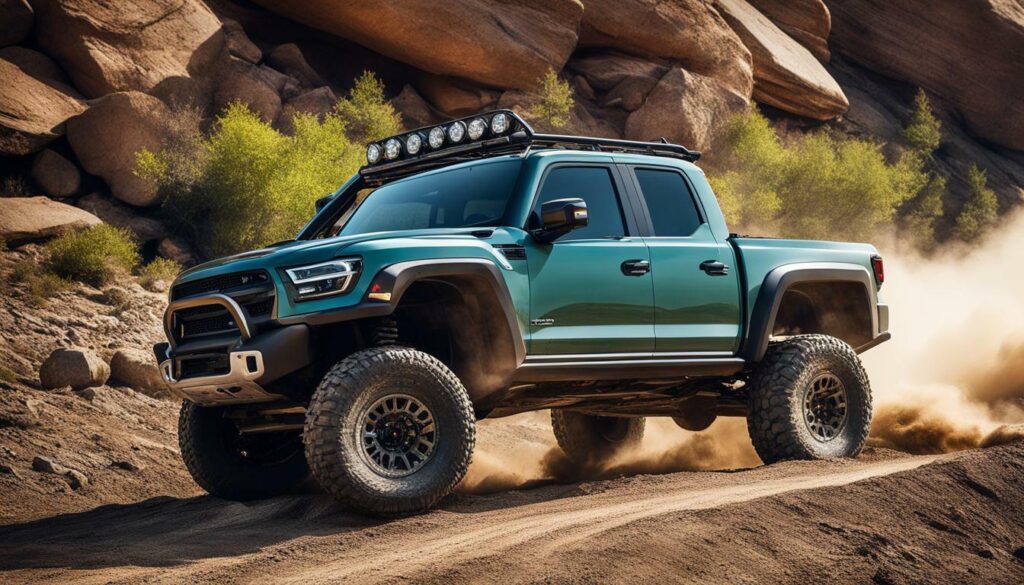
| Frame Type | Advantages |
|---|---|
| Rigid |
|
| Articulating |
|
Key Considerations in Off-Road Performance
When it comes to off-road performance, the choice between rigid and articulating frames can significantly impact various crucial factors. Rigid dump trucks, with their one fixed chassis, offer stability and are well-suited for transporting large, rocky materials across rough terrains. Their design makes them ideal for long-distance journeys on flat terrain, providing a solid and dependable platform for hauling heavy loads.
On the other hand, articulated dump trucks excel in maneuverability and traction on uneven or slippery terrain. Their point of articulation behind the cab allows for greater flexibility, making them suitable for navigating narrower, twisted, and steeper roads. Additionally, their ability to adapt to extreme weather conditions makes them a preferred choice for challenging job sites.
When selecting the appropriate frame type for off-road applications, several factors need to be considered. The size of the job site plays a crucial role in determining the maneuverability required. If the site is compact or has limited space for turning, an articulated dump truck would be a more suitable option. Additionally, the type of terrain and the amount and type of material to be hauled are essential considerations. If the terrain is rugged or unstable, or if the material requires extra traction, an articulated dump truck would offer better performance.
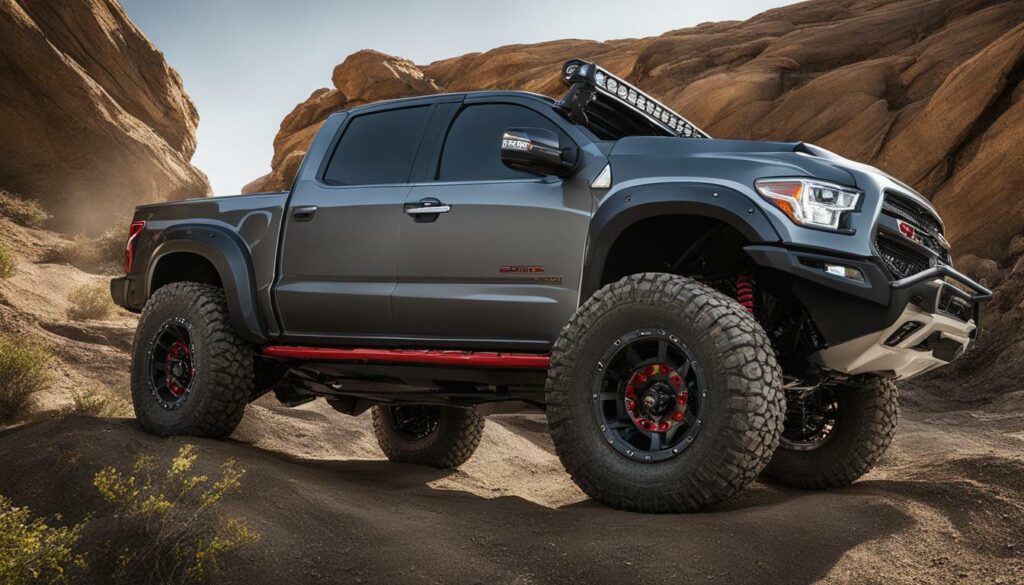
Overall, the choice between rigid and articulating frames should be based on a careful assessment of the specific job requirements. Rigid dump trucks are more stable and better suited for certain terrains and long-distance journeys, while articulated dump trucks provide superior maneuverability and adaptability in challenging conditions. By considering the size of the job site, the terrain, and the material to be hauled, decision-makers can ensure they choose the right frame type to maximize off-road truck performance.
Conclusion
Understanding the difference between rigid and articulating frames in off-road trucks is essential in making an informed decision for optimum performance and utility. Rigid dump trucks, with their fixed chassis, provide stability and are best suited for long-distance journeys on flat terrain, making them ideal for transporting large, rocky materials across such terrain. On the other hand, articulated dump trucks offer increased maneuverability and traction on uneven or slippery terrain, making them a more flexible option for narrower, twisted, and steeper roads, as well as extreme weather conditions.
When choosing between rigid and articulating frames, various factors need to be considered. The size of the job site, the type of terrain, and the amount and type of material to be hauled all play a crucial role in determining the most suitable frame type for the job. Rigid frames excel in stability and long-distance travel, while articulating frames shine in maneuverability and adaptability to challenging conditions.
By understanding these differences and considering the specific requirements of the job, operators and fleet managers can ensure they select the right frame type for their off-road hauling needs. This decision can have a significant impact on the truck’s overall performance and productivity, as well as on the safety and efficiency of the operations.
FAQ
What is the difference between rigid and articulating frames in off-road trucks?
Rigid dump trucks have a cab and dump body that sit on one fixed chassis, while articulated dump trucks have a cab that attaches to the tipping body at a point of articulation behind the cab.
What are the benefits of rigid frames in off-road trucks?
Rigid dump trucks are designed for transporting large, rocky materials across rocky terrain. They offer stability and are better suited for long-distance journeys on flat terrain.
What are the advantages of articulating frames in off-road trucks?
Articulated dump trucks are more flexible and can be used on narrower, twisted, and steeper roads, as well as in extreme weather conditions. They excel in maneuverability and traction on uneven or slippery terrain.
How do construction and design factors differ between rigid and articulating frames in off-road trucks?
Rigid dump trucks have a chassis, cab, and dump body that are fixed and do not articulate. Articulated dump trucks have a cab that attaches to the tipping body at a point of articulation behind the cab, allowing for increased flexibility and maneuverability.
How do I choose the right frame type for my off-road truck?
The choice between rigid and articulating frames depends on factors such as the size of the job site, the type of terrain, and the amount and type of material that needs to be hauled. Consider the specific requirements of your project to make an informed decision.
What are the key considerations in off-road performance when comparing rigid and articulating frames?
Rigid frames offer stability and are better suited for long-distance journeys on flat terrain. Articulating frames provide increased maneuverability and traction on uneven or slippery terrain, as well as flexibility for navigating narrower, twisted, and steeper roads.
 Skip to main content
Skip to main content